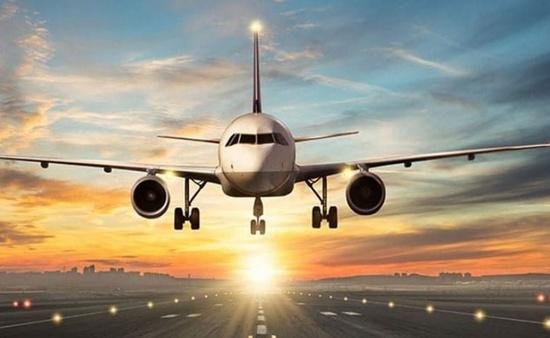After severe winter weather extended into Tuesday, travelers continue to face difficulties reaching their destinations, with over 2,400 U.S. flights canceled and more than 8,000 delayed as of 7 p.m. ET Tuesday, according to FlightAware, a real-time air traffic tracking service.
For Keith Patton, 31, the disruptions began with a five-hour delay on his American Airlines flight from Omaha, Nebraska, to Phoenix due to heavy snowfall in Omaha, compounded by a malfunctioning de-icing machine. Subsequently, his return flight on Sunday was canceled. Despite attempting to find alternative options with American Airlines, Patton ultimately booked a direct flight with Southwest Airlines for Monday, only to encounter another cancellation.
Frustrated and facing limited alternatives, Patton resorted to booking an $800 first-class flight with Delta, spending over $1,700 for a prompt return home. He highlighted the challenge of such situations, recognizing that many individuals lack the financial flexibility to choose expensive alternatives.
In scenarios like these, where airlines are not obligated to rebook passengers on other carriers, individuals can find themselves using emergency savings. Patton emphasized that unforeseen circumstances like flight disruptions could potentially deplete someone’s entire emergency fund.
Flight Cancellations and Delay Compensation:
Cancellation Procedures: According to the Department of Transportation (DOT) rules, airlines must offer a refund to customers if their flights are canceled for any reason. However, additional compensation may be due if the cancellation is within the airline’s control. Weather-related cancellations are considered outside airline control.
For Alaska, American, Delta, Hawaiian, JetBlue, or United, if a cancellation is within their control, they commit to:
- Rebooking passengers on the same or partner airline at no extra cost.
- Providing meals or cash/vouchers for a meal if the cancellation results in a passenger waiting at least 3 hours for a new flight.
- Offering complimentary hotel accommodations for passengers affected by an overnight cancellation.
- Supplying complimentary ground transportation to and from a hotel for passengers affected by an overnight cancellation.
Alaska and JetBlue passengers may also be eligible for additional compensation.
Frontier, Allegiant, Southwest, and Spirit, on the other hand, do not typically rebook passengers on partner airlines, and Frontier does not offer hotel accommodations and related transport.
Delayed Flight Procedures: While there are no federal laws mandating compensation for delayed flights, U.S. carriers have committed to various levels of compensation for significant delays within their control. The specifics vary by airline.
For Alaska, American, Delta, JetBlue, and United, if a flight is significantly delayed within their control, they generally commit to:
- Rebooking passengers on the same or partner airline at no extra cost.
- Providing meals or cash/vouchers for a meal if the delay results in a passenger waiting for at least 3 hours.
- Offering complimentary hotel accommodations for passengers affected by an overnight delay.
- Supplying complimentary ground transportation to and from a hotel for passengers affected by an overnight delay.
Alaska and JetBlue may also offer extra compensation for delays of 3 or more hours.
Allegiant, Frontier, Hawaiian, Southwest, and Spirit usually do not rebook travelers on partner airlines. Frontier does not offer hotel accommodations or related transport.
What to Do if Your Flight is Delayed: For passengers experiencing a lengthy delay, the DOT suggests inquiring with airline staff about potential compensation for meals or a hotel room. While the DOT dashboard reflects official policies, many carriers handle compensation for delays on a case-by-case basis and may provide vouchers or benefits beyond the formally stated rules.
Individuals facing significant delays can also explore travel insurance options, as some credit card companies may reimburse cardholders for expenses related to travel disruptions when the travel is booked using their cards.
As the challenges of winter weather persist, understanding airline policies and individual rights in situations of flight disruptions becomes crucial for travelers seeking a smoother journey.
Paris sightseeing
Book Paris activities
Louvre museum paris
Paris limousine rental
Rolls Royce Paris
Eiffel Tower Paris
Airport Transfer Paris
Book Paris Taxi
Seine River Cruise
Wine Tasting Paris
Paris luxury hotels
Switzerland luxury hotels
Europe Car rental
Europe coach rental
Paris Limousine
Dior Paris
Beauvais Airport transfer
